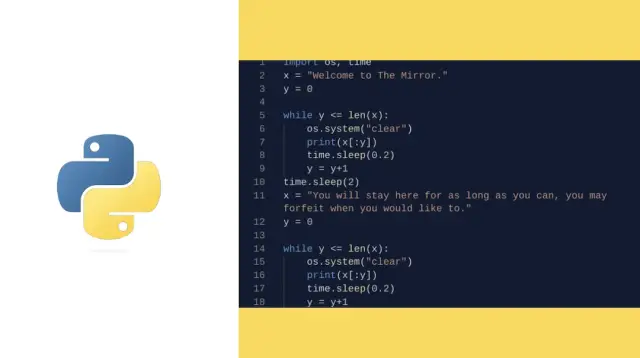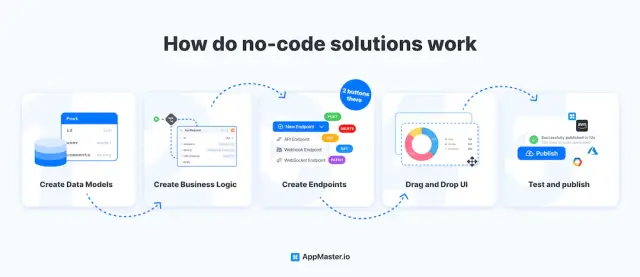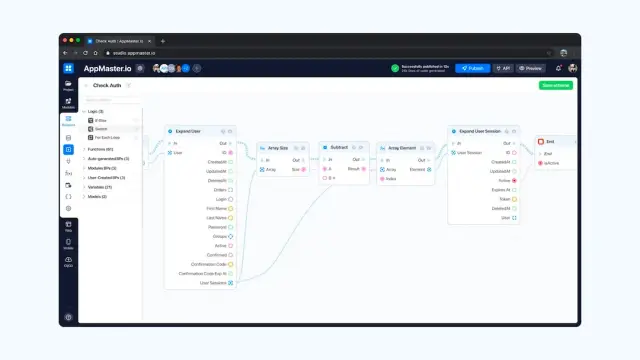How to Learn Python in 2024
There are many reasons why you should learn python, but it may surprise you that learning it can be the fastest way to become a programmer.

Python is a programming language with many characteristics, including an intuitive syntax and robust data structures, which can lead to efficient code. As an interpreted language, Python has a relatively slow execution speed. However, the trade-off may be worth it for the development time saved. It can be effective for many tasks, including data analysis, machine learning, and automation. Python programming language is also a popular language for scripting, machine learning, and web development.
What is Python
Python programming language has been gaining a lot of traction in recent years. Though not as widespread as programming languages like Java or C, Python is steadily increasing in popularity, especially among beginner programmers. If you're new to coding and looking for programming languages, Python might be a good option for you. But what exactly is Python, and what can you do with it? Let's take a look.
It is a high-level, interpreted programming language known for its ease of use. Python is designed to be straightforward, unlike other programming languages, which can be challenging to read and understand. This makes it an excellent choice for beginner programmers just starting to code. In addition, Python is an open-source language, meaning anyone can contribute to its development.
How does the Python programming language work?
Because of its simplicity and readability, Python is often used for web development and scripting tasks that would be tedious or difficult in other programming languages. For example, you might use Python to automate filling out online forms or scraping data from websites. Additionally, Python can build basic programs and games (though more complex games will require additional coding languages).

Python programming language is also frequently used in scientific computing, web development, and machine learning tasks. Thanks to its ease of use and readability, it has become one of the most popular programming languages for these applications. If you're interested in working with data or building machine learning models, learning Python is an excellent place to start.
How to learn Python
Step One: Familiarize yourself with the basics
Before you start writing programs, it is vital first for Python beginners to understand the basic syntax and structure of the Python programming language. You can find many resources online that will introduce you to the basics of the language. Once you understand the basics well, you are ready to move on to step two.
Step Two: Choose a topic or project to focus on
One of the best ways to learn a Python programming language as a Python beginner is to choose a project of data science or topic that you are passionate about and start writing code related to it. This will help you stay motivated and engaged as you learn more complex concepts. If you need app ideas, many online resources provide lists of project ideas for beginners.
Step Three: Find resources and start coding
Now that you have chosen a topic or project, it's time to start coding! Many free online resources can help you learn how to code in Python. Sites like Udemy offer interactive tutorials to teach you the basics of writing code. Once you feel confident, try tackling your chosen project related to data science or other areas. Remember, trial and error is part of the learning process, so be encouraged if things work out perfectly at first in web development.
Where is Python used
Python is used in many places. It's among the popular programming languages for scientific computing and is often used in data science and machine learning. It's also used in web development, where you can use it for everything from developing server-side web applications to powering the backend of a site or service. Python programming is even used in video games to convert project ideas into reality.
There are many reasons why Python is so popular than other programming languages.
- One reason is that it's relatively easy to learn. Python programming language has a very straightforward syntax, which makes it ideal for beginners to do web development. Additionally, Python is highly versatile. It can be used for many tasks, from simple scripts to complex applications.
- Despite its popularity, Python does have some drawbacks. One issue is that it can be slow to run, especially compared to programming languages like C++. Additionally, Python is not always the most efficient language for large-scale applications. However, for many users, these drawbacks are outweighed by their advantages.
- Overall, Python programming language is an extremely popular language that is used in a variety of different contexts. It's easy to learn, versatile, and relatively fast. While it does have some drawbacks, its strengths make it an ideal choice for many tasks.
Benefits of learning Python
Python is a programming language with many advantages. Python is a high-level, interpreted programming language that may be used for any purpose. Created on December 3, 1989, by Guido van Rossum, with a design philosophy entitled "There's only one way to do it, and that's why it works." The statement in the Python programming language implies that explicit is preferable to implicit. Additionally, it inspires the famed Guido van Rossum Python telegraph pole analogy, which goes as follows:

In Python, readability counts; that's why Python programming language is sometimes described as executable pseudocode. It's a language where the coder expresses their intent more clearly than in many other programming languages. It also happens to be a language in high demand by employers.
There are some great reasons to learn Python code whether you want to:
Be a better coder overall
Python programming language makes you a better coder overall because the language is designed to be easy to read and understand. This means you will spend less time figuring out what your code is supposed to do and more time actually coding. In addition, Python is a universal language. It can be used for web development, scientific computing, artificial intelligence, data science, machine learning, and more. As a result, learning Python will make you a more well-rounded programmer.
Start a new career in tech
Python is a flexible language that may be used for a web application's front end, back end, or entire stack overflow. Become a Python programming language developer and start your new career in tech today! The Python programming language is easy to learn for beginners and has many modules and python libraries that allow for robust programming. Python developers are in high demand across the globe.
If you want to start your career in tech, learning Python code is a great place to start. Start learning programming by finding resources online or taking a class. Once you have learned the basics of Python code, you can begin working on coding projects. Share your work with others in the community and start building your portfolio. Moreover, it is an unambiguous, easy-to-read, general-purpose, high-level programming language that considers structured, procedural, and object-oriented programming paradigms.
Due to these features and its Libraries for scientific computing and data analysis, Python has become the most popular programming language for students and professionals worldwide to learn to program. In particular, researchers use Python programming language in many data science, engineering, machine learning, and mathematics areas.
Some benefits of learning Python code include the following:
- Increased productivity: Python code enables developers to write code quickly and efficiently thanks to its concise syntax. This makes it popular for scripting, prototyping, or creating small programs.
- Broad application area: Python has been successfully applied in various domains such as web development, data science, artificial intelligence (AI), finance, scientific computing, etc. As a result, a large community of Python experts can offer valuable support and guidance when needed.
- Versatility: Python programming language is a versatile language that can be used on different platforms such as Windows, macOS, and Linux. It also has data analysis and scientific computing libraries, making it an attractive choice for students and professionals in these fields.
Python code is recommended for beginners in coding because of its ease of use and readability. It enhances coding skills. Experienced developers also love using Python because of its comprehensibility, reducing the time needed to maintain code. Learning Python skills is excellent if you're looking for a language with high job demand and relatively low competition. Overall, Python code has many benefits, making it an excellent choice for beginners and experienced developers. So, learn to program.
Is Python difficult to learn?
What to expect when learning Python code
Many people wonder if Python is a complicated language to learn. The answer is usually something along the lines of "it depends." Like any programming language, Python has its own set of rules and syntax that can take some time to get used to. However, Python is generally easier to learn than most other programming languages because it is designed to be readable and intuitive. Let's have a rundown of what you can expect when learning Python so that you can decide for yourself if it is the correct language for you.
The syntax
One thing that makes Python stand out among popular programming languages is its relatively simple syntax. In contrast to programming languages like Java or C++, which use a lot of punctuation and keywords, Python code looks a lot like plain English. For example, look at this code that prints the phrase "Hello, world!":
print( "Hello, world!")
See? That wasn't so bad, was it? This readability also extends to the naming conventions used for variables and functions. In Python programming, we use snake_case (all lowercase letters with underscores separating words) for variable and function names. This makes the code much easier to read and understand, especially for newcomers. Of course, you still need to learn some syntax to write proper Python code—but don't worry, we'll get to that later.
The ecosystem
Another thing that sets Python programming language apart from other programming languages is the size and quality of its ecosystem. The Python ecosystem is the collection of libraries, tools, and companies that surround the language. This ecosystem is one of the reasons why Python has become so popular in recent years; it provides users with everything they need to accomplish their tasks quickly and easily. It makes web development look in grasp.
For example, if you need to do some data analysis, you can use the pandas' library; if you need to build a web application, you can use Django; and if you need to perform machine learning tasks, you can use sci-kit-learn. The list goes on and on-regardless of what you want to do with Python skills, there's almost certainly a library out there that will help you do it.
Of course, this also means a bit of a learning curve when it comes to an understanding all the different libraries available. However, once you get over that hump, you'll be able to browse through the vast array of options available and easily pick out the ones that are right for your project. And if there's ever a library you can't find? Well, then, you can always create your own!
So what's the verdict? Is Python hard to learn? I would say no-at least not compared to other programming languages. Yes, there is a bit of a learning curve when it comes to an understanding all of the different python libraries available in the ecosystem; however, once you get over that hump, you'll find that Python is easy to read and write thanks to its simple syntax. Don't believe me? Why not try learning some basics yourself? After all, the best way to find out if something is difficult is by doing it yourself!
What is the fastest way to become a programmer?
There is no one-size-fits-all answer to this question, as the best way to learn programming depends on your specific goals and learning style. However, one of the fastest ways to learn to program is by using no-code development tools and frameworks.

No-code web development tools allow you to create applications without writing any code. This can be a great way to get started with programming, as you can see your creations come to life without having to learn complex coding languages. Additionally, no-code development frameworks often provide built-in support for popular programming languages, making it easy to transition from no-code development to coding once you are ready.
The best way to become a no-code developer is to learn the AppMaster platform. AppMaster is the most potent code-generation platform on the market. You can create web apps, mobile apps, and backend. It is a no-code platform that enables users to develop and deploy mobile and web applications without significant programming experience. With AppMaster, users can create custom applications (e.g., mobile apps) by simply dragging and dropping components into a visual interface. Applications can be deployed in minutes, and there is no need to learn complex programming languages. AppMaster is perfect for business owners, entrepreneurs, and anyone who wants to create custom applications (either mobile apps or web apps) without knowing how to code.
Misconceptions about no-code
- The first misconception is that no-code development is easy. This is not true. While no-code development makes creating software easier, it still requires skill and knowledge to use it effectively.
- Another misconception is that no-code development produces low-quality code. Again, this is not true. With the right tools and techniques, no-code development can produce high-quality code just as well as traditional development methods.
- Another common misconception is that no-code development is only for small projects or MVP s. This is also not true. No-code development can be used for large projects and mobile apps just as quickly as small projects. Finally, some believe that only code development can be used for enterprise applications. This, too, is false. No-code development can be used for enterprise applications, but it requires a different approach than smaller projects.
How AppMaster works?
In AppMaster to begin with, an actual PostgreSQL database is created according to the scheme assembled by the database designer. For the first time, everything is quite simple, it is empty, but with further publications, its structure may change, while you need to save the data itself so the data is migrated.
Further, all business processes are assembled into real code in the Go language. A full-fledged application is automatically written as if developers wrote it. Only it is written at a speed of 22,000 lines of code per second. With further publications, some changes are added, and everything is rewritten from scratch.

Therefore, the application is always up to date, and there is no technical debt. And writing a real application guarantees that it will work even if AppMaster itself has some problems. It does not depend on it in any way, and it can be used anywhere, on any server.
In addition, Swagger documentation is automatically generated. It is immediately available online; you can check all the application endpoints, test them in practice, access the database, etc. The rest is as needed. A web application can be created on Vue3, usually, various admin panels are created there, but in general, almost any application can be created. And a separate mobile application, Server Driven UI. It can be tested in AppMaster Developer, Android, and iOS.
Upon completion of development, you can officially publish in the app store. There are no templates in the platform for software development or app development. It would help if you built the application architecture, business processes, and business logic yourself. The logic of the platform is exactly the same as in traditional software development in programming languages; you also have endpoints, WebSockets, and so on. Only software development is carried out not with the help of a programming language but with the help of visual blocks and links.
AppMaster has its own academy where you can learn how to work with the platform for free. You can choose a course depending on your technical background. You can start from the very basics if you have no technical background and experience or take a more advanced course. You can start learning AppMaster for free at AppMaster University.





